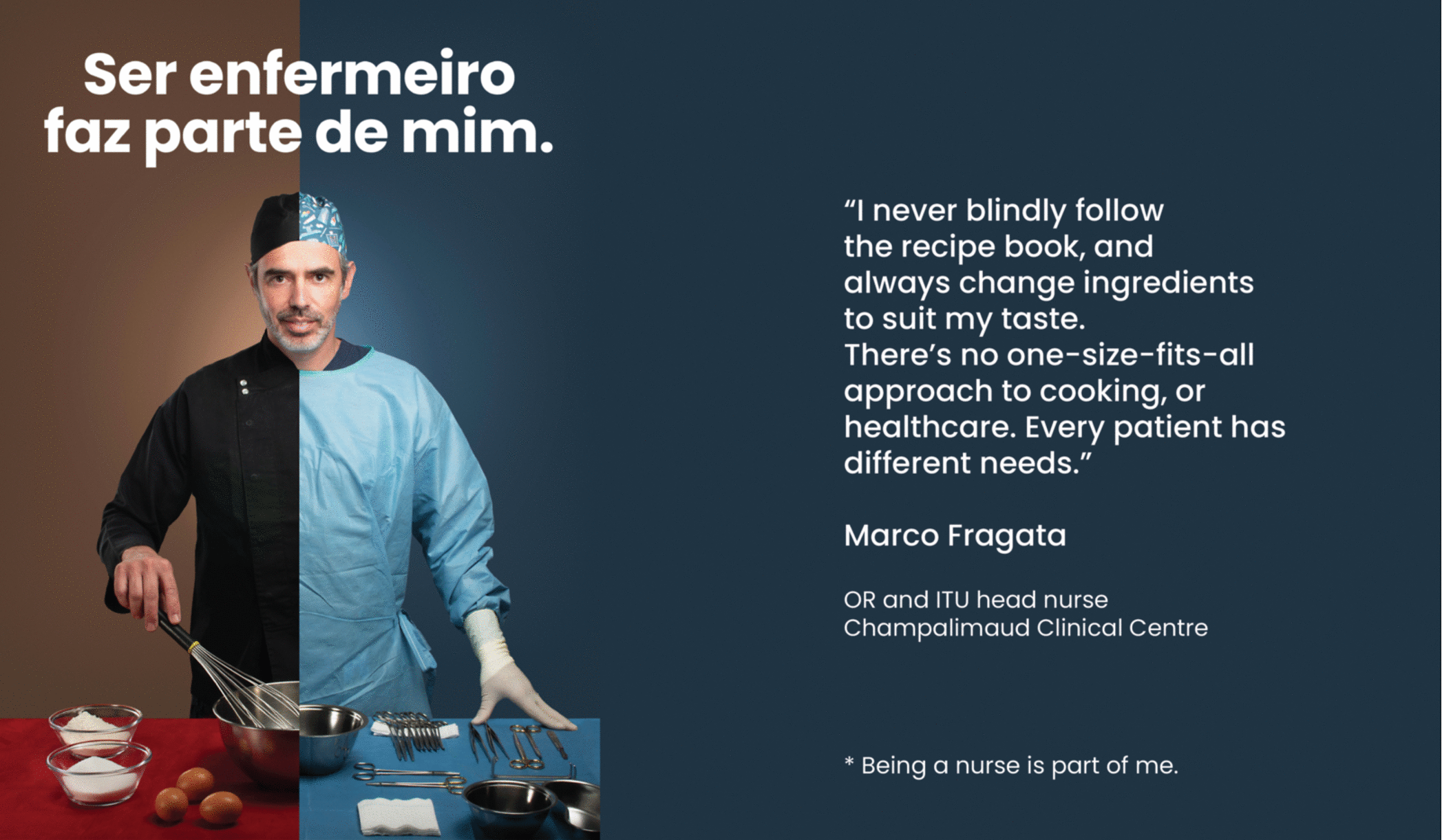06 August 2021
Right now, lung cancer is the most lethal cancer in the world. Eighty percent of its victims are smokers, making smoking a determinant risk factor for this cancer. But according to oncologist Nuno Gil, who heads the Lung Unit at the Champalimaud Clinical Centre, smoking is not the ultimate cause of lung cancer. First, many smokers never develop lung cancer, and second, a growing number of non-smokers have this disease. Nuno Gil would really like to solve this mystery.
12 May 2021
Being a nurse is part of me
To celebrate International Nurses Day, we asked Champalimaud Foundation’s oncology nurses to explore the parallels between their personal and professional lives. From cooking to photography, from Crossfit to ballroom dancing, what similarities with nursing do they find?

01 April 2021
European innovation award goes to a device that does surgery “without surgery,” developed by the Champalimaud Foundation
The original idea came from a gastroenterologist at the Champalimaud Foundation, in Lisbon. But transforming it into the object that now embodies it took several years of work by a team of scientists, doctors and engineers in Portugal and Belgium. The first results of a pilot study of this non-surgical device, called MAGUS (for Magnetic Gastrointestinal Universal Septotome), which performs a “cut and paste” procedure in the human body, were announced in 2020.
28 January 2021
Bringing “respiratory biopsies” into the clinic for early lung cancer detection
Studies have suggested for years that dogs are masters at detecting disease thanks to their exceptional sense of smell. Experts agree that their success most probably lies in their ability to sniff out so-called volatile organic compounds, or VOCs, in the air people exhale. In the last few years, more than 1,000 VOCs have been identified in human breath, and scientists are now seeking to determine which ones could be relevant cancer biomarkers.
12 December 2020
Watch & Wait Protocol
Today, the growing consensus among experts is that surgery should no longer be the only therapeutic option in rectal cancer treatment. A non-invasive approach, the Watch-and-Wait protocol – which drastically reduces the toll of the disease on patients’ quality of life – has increasingly shown promising results for the treatment of such tumours. A new study now explores the next logical step: whether these patients should be submitted for life or just for a certain period to the stringent follow-up required by the protocol.
18 November 2020
Augmented reality technology used for the first time to guide breast-cancer surgery with personalised breast models
Last January, a team at the Champalimaud Clinical Centre, in Lisbon, successfully tested the precision of a novel, non-invasive, 100% digital method for locating cancerous breast tumours “on the fly” during surgery. For the first time in operating room settings, a surgeon fitted with an “augmented reality” headset was able to visualise, in real-time, a virtual image of the tumour to be extracted from inside the patient’s body.
19 November 2020
The war against pancreatic cancer has begun
Randy Pausch’s story is both a tragic and a generous one. He was an American computer science professor and virtual reality wizard at the University of Carnegie Mellon, in Pittsburgh, who died of pancreatic cancer in July 2008, at the age of 47.
